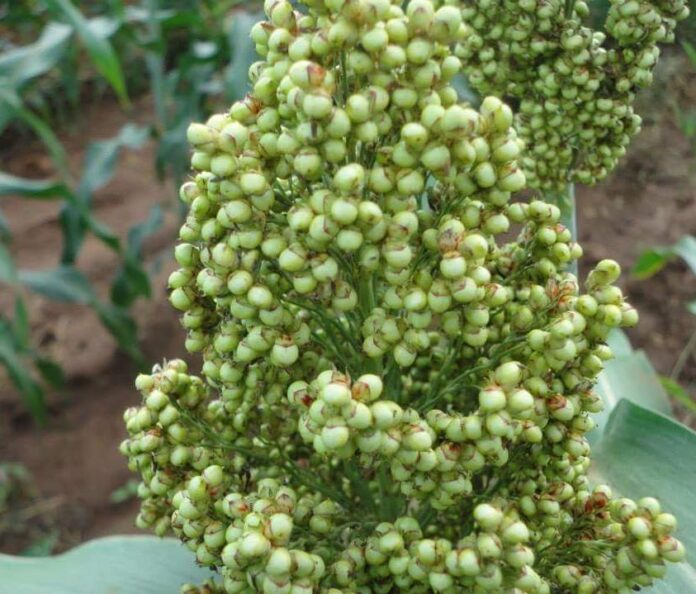In a significant advancement for agricultural science, researchers have identified a genetic mechanism that enhances salt tolerance in sweet sorghum, a development with profound implications for global food security.
The study, published in Scientific Reports on March 4, 2025, reveals that variations in the promoter region of the SWEET13 gene play a pivotal role in how sweet sorghum allocates sugars under salt stress conditions.
This discovery offers a potential pathway to cultivate crops resilient to salinity, a growing concern due to climate change and soil degradation.
Understanding the SWEET13 Gene’s Role
Sucrose, produced through photosynthesis, is essential for plant growth and development. Its transport from source tissues (like leaves) to sink tissues (such as roots and grains) is crucial, especially under stress conditions. The SWEET13 gene encodes a transporter protein that facilitates this sugar movement.
Researchers observed two sweet sorghum genotypes, ‘Della’ and ‘Razinieh,’ under salt stress. ‘Della’ redirected sugars to stems and roots, while ‘Razinieh’ channeled them towards grain development. This difference was linked to the activity of the SWEET13 gene. In ‘Razinieh,’ a salt-activated variant of the SWEET13 promoter led to increased sugar accumulation in grains, enhancing yield despite saline conditions.
Implications for Crop Cultivation
Soil salinity affects over 800 million hectares globally, reducing agricultural productivity. With climate change exacerbating this issue, developing salt-tolerant crops is imperative. The identification of SWEET13’s role provides a target for breeding programs aiming to enhance crop resilience.
By selecting for or engineering the salt-responsive variant of the SWEET13 promoter, breeders can develop sweet sorghum varieties that maintain or increase yields in saline soils. This approach could be extended to other crops, offering a broad strategy to combat the challenges posed by soil salinity.
Broader Impact on Food Security
Sweet sorghum is valued for its versatility, serving as a source of food, fodder, and biofuel. Enhancing its salt tolerance ensures its viability in regions where salinity limits agricultural options. This advancement supports efforts to secure food supplies in vulnerable areas, particularly in parts of Africa and Asia where salinity is a pressing issue.
Moreover, understanding the genetic mechanisms behind stress responses in crops contributes to the broader goal of developing climate-resilient agriculture. As environmental stresses become more prevalent, such insights are crucial for sustaining global food production.
Future Research Directions
The study’s findings open avenues for further research into the regulation of sugar transport under stress conditions. Investigating how other genes interact with SWEET13 and exploring similar mechanisms in different crops could amplify the impact of this discovery.
Additionally, field trials assessing the performance of SWEET13-enhanced varieties in diverse environments will be essential to validate laboratory findings and guide practical applications in agriculture.
The identification of a gene switch that enhances salt tolerance in sweet sorghum marks a promising step toward developing crops capable of thriving in challenging conditions, thereby contributing to global food security.









